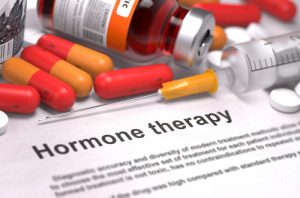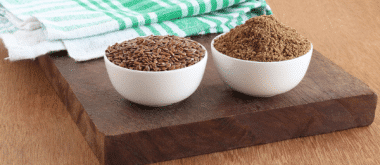There’s no doubt about it, women’s bodies may change around menopause, raising the likelihood of certain health problems.
Decreased estrogen levels and other aging-related issues, such as gaining weight, can increase a woman’s chances of developing osteoporosis, heart disease, and stroke. In fact, studies show that some health problems may actually become more common after menopause.
Here we address where hormone therapy comes into play for treatment and prevention, and what screenings can help with early detection.
Health Concerns Associated with Menopause
Once the ovaries produce less estrogen and menopause is in full swing, low progesterone and estrogen levels can increase health risks. As women age, these risk factors remain and health concerns may develop into more severe problems. Some of these health risk concerns are as follows:
Did you know that studies show women have less risk of heart disease before the age of 55 than men do. Once menopause occurs and estrogen production diminishes, heart disease risks rise and become similar for both men and women by the age of 70. This is presumed to be because the presence of estrogen, which relaxes blood vessels and aids in balancing good and bad cholesterol since cholesterol builds in arteries without estrogen. In addition to the increased risk of heart disease, buildup of cholesterol in vessels leading to the heart or brain can increase the risk of stroke.
Studies have determined that stroke risk increases every decade after the age of 55, and adding the decreasing levels of estrogen to this statistic may contribute to brain artery cholesterol buildup.
It has been found that lower estrogen levels in women leads to a faster decrease in bone mass, ultimately increasing the risk of osteoporosis onset. According to a recent study, women who experience vasomotor symptoms (VMS), more commonly known as menopausal hot flashes and/or night sweats, have an increased risk of bone loss and hip fracture. This correlation between VMS and fractures was determined to be a result of hormone fluctuations, specifically lower estradiol levels, as some longitudinal studies have found lower estradiol levels among women with more severe VMS.
Did you know that the bones accumulate lead? When the body is exposed to or consumes lead, most of the toxic chemical is stored in the bones. Furthermore, this skeletal lead can leach back into the bloodstream when bone density is compromised, either temporarily or permanently due to pregnancy, weight loss, menopause, or osteoporosis. As bone density breaks down following menopause, lead can enter the bloodstream easier and can increase women’s lead levels by 30 percent, thus increasing the risk for hypertension and atherosclerosis risk.
In addition, if not balanced or monitored, it can result in problems with kidney function, and dementia-like symptoms affecting memory and thinking.
Around half of women have urinary incontinence after menopause due to urethral weakness that occurs when hormones shift and a lack of estrogen occurs. Not only can this occurrence be inconvenient or embarrassing, urinary incontinence is also the main symptom of genitourinary syndrome of menopause (GSM), or low estrogen-specific conditions that causes external implications. Furthermore, it often affects about 50 percent of menopausal women and is often associated with sexual dysfunctions.
With declining estrogen levels, bones health is at risk, and bone loss of the jawbone is no exception. With this comes the risk for loose teeth, tooth loss and periodontal disease, which is why dental health and hygiene become a major concern as women age. Cavities and additional oral discomfort risks including dry mouth and sensation of painful mouth often occur during and after menopause as well.
Hormone Therapy for Prevention

Various studies have demonstrated however, that estrogen replacement therapy during and after menopause may improve, or even reverse the symptom of urinary stress and incontinence.
When it comes to bone loss and estrogen replacement however, improvement can be made. While the condition of osteoporosis cannot be completely reversed, steps can be taken to improve bone loss to rebuild or slow down the bone loss. In addition, regularly meeting nutrient requirements for vitamin D, calcium, vitamin K, zinc, magnesium and protein, and participating in regular physical activity can help strengthen the bones and joints to limit the risk of fractures and bone-related ailments.
Like all medicated therapies, hormone replacement therapy should be discussed you’re your doctor in depth and treatment should be individualized to meet the patient’s specific needs and take previous health concerns into consideration.
Preventative Screenings During and After Menopause
Regular doctor visits and preventative screenings are important at any age, but as women get older and hormones change and health risks increase the importance increases as well. Before and after menopause women should get several common screenings. These include:
- Regular mammograms between ages 50 and 75
- Regular pelvic exams; pap tests and HPV tests should be taken at least every five years until age 65, and as recommended after that.
- Bone density testing to detect bone loss or concerns.
- Blood tests for monitoring or diagnosing diabetes, heart disease, blood pressure, cholesterol, and other conditions.
For a more detailed look at Important Health Screenings and Vaccinations During Menopause and Beyond, click here.
Tips for Staying Healthy During Menopause
When it comes to menopause, many changes are beyond our control, however not everything in our health later in age is left to chance. There are a number of changes and practices that can be done in day to day activity to help promote overall health and limit the risks associated with post-menopause.
If you smoke, now is the time to quit to improve your health. In addition to lung concerns, smoking damages bone health, can lead to the onset of heart disease, and can increase the risk of up to 12 types of cancer in women.
Strive to exercise for 30 minutes a day. Exercise can help improve bone strength, heart health, and even boost your mood. Keeping it simple with regular walking or household chores can even be enough for improving health. Find out what activities suit you best and if you can incorporate them, aim for including moderate aerobic physical activity for two to three hours a week or vigorous aerobic activity for one hour a week, while also including strength-focused exercises.
For helpful Steps to Start New Fitness Habits Later in Life; According to Behavioral Science, click here.
Nutrition is just as important today as it was pre-menopause. While older women may require fewer calories, talk with your doctor to discuss calculating your necessary calorie needs based on your height, weight, and activity level, as well as any specific nutrient recommendations to accommodate any deficiencies.
In general, women over the age of 50 need specific levels of vitamin B6, B12, and calcium as they age. Vitamin D is also important and may not be at adequate levels from diet alone. Thus, have your doctor assess your needs for these nutrients and discuss finding the right menopausal and post-menopausal supplement regiment that meets your dietary needs.
Pregnancies are impossible after menopause, but sexually transmitted diseases are still possible. If with multiple partners or an open relationship, use condoms during sex to prevent STDs as symptoms can often be non-specific or may be misinterpreted as being due to the menopause. Additionally, due to menopause the vagina may become drier, resulting in small cuts or tears during sex. These tears can then increase the risk for infection.
Conclusion
As menopause progresses, these are just a few important things to know about the transition and maintaining overall health. Ensuring to take good care of your health, seeing a doctor regularly and asking them questions when concerns arise and following their advice, can help you avoid unnecessary health risks and stay healthy well into your later years.





